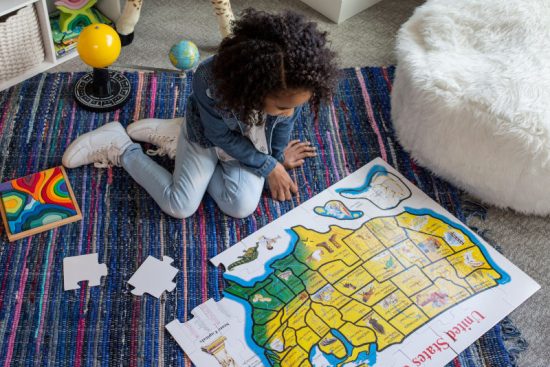
Parenting toddlers can feel like navigating a whirlwind. These little explorers are full of energy, curiosity, and a desire for independence. While their boundless enthusiasm is heartwarming, it often leaves parents searching for effective strategies to manage their child’s development and behavior.
Parenting Tips for Toddlers
 Parenting toddlers involves balancing their quest for independence with necessary guidance. Addressing their developmental milestones and understanding child psychology can make this task easier.
Parenting toddlers involves balancing their quest for independence with necessary guidance. Addressing their developmental milestones and understanding child psychology can make this task easier.
Toddlers undergo rapid development in various domains. Physical growth includes walking, running, and climbing. Language skills improve from single words to short sentences. Cognitive development involves solving simple problems, recognizing shapes and colors, and beginning to understand time concepts. Emotional and social milestones include expressing a range of emotions, playing alongside peers, and showing empathy. Tracking these milestones helps parents support their toddler’s progress effectively.
Importance of Understanding Child Psychology
Understanding child psychology is crucial for addressing a toddler’s temperament and behavior. Toddlers seek autonomy, which often leads to conflicts and tantrums. By comprehending the reasons behind behaviors like aggression or clinginess, parents can employ strategies to manage these situations better. For instance, offering choices empowers the child, reducing the likelihood of power struggles. Recognizing triggers for negative behavior allows parents to mitigate them, fostering a harmonious environment.
Essential Parenting Tips for Toddlers
Establishing a solid foundation during toddler years is crucial for their overall development. Parents can adopt strategic practices to navigate this phase successfully.
Establishing Routine
 Routine offers toddlers a sense of stability. Predictable schedules reduce anxiety and help toddlers understand expectations. Start with consistent wake-up and bedtimes. Introduce regular meal times, nap times, and play sessions. Keep activities in the same order daily to create a rhythm. Morning routines may involve brushing teeth, breakfast, and getting dressed. Evening routines can include dinner, bathtime, and a bedtime story.
Routine offers toddlers a sense of stability. Predictable schedules reduce anxiety and help toddlers understand expectations. Start with consistent wake-up and bedtimes. Introduce regular meal times, nap times, and play sessions. Keep activities in the same order daily to create a rhythm. Morning routines may involve brushing teeth, breakfast, and getting dressed. Evening routines can include dinner, bathtime, and a bedtime story.
Encouraging Positive Behavior
Positive reinforcement encourages desirable behavior in toddlers. Focus on praising good actions rather than punishing bad ones. Use specific compliments like “great job sharing your toys.” Model the behavior you want to see in your child. Demonstrate polite language and patience, and your toddler will likely imitate it.
Nutritional Guidelines for Toddlers
Balanced Diet Components
Toddlers need a balanced diet to ensure proper growth and development. Their meals should include a variety of foods, such as fruits, vegetables, grains, proteins, and dairy. Fruits and vegetables provide essential vitamins and minerals. Grains like oatmeal and brown rice offer energy. Proteins, including lean meats, eggs, and beans, support muscle growth. Dairy products, such as milk and cheese, ensure calcium intake.
Portion Sizes
Proper portion sizes for toddlers are crucial, as their stomachs are smaller. Generally, serving sizes should be about one-quarter of an adult portion. For example, one serving of vegetables may be 1-2 tablespoons, while one serving of protein like chicken can be the size of a half-dollar.
Hydration Needs
Hydration is essential for toddlers. They should drink a mix of milk and water, totaling 4-6 cups daily. Limit fruit juice intake to no more than 4 ounces per day to avoid excessive sugar consumption.
Snack Time Tips
 Healthy snacks contribute to a balanced diet. Offer snacks like sliced fruits, yogurt, or whole-grain crackers. Avoid sugary treats and drinks, which can lead to dental issues and energy spikes.
Healthy snacks contribute to a balanced diet. Offer snacks like sliced fruits, yogurt, or whole-grain crackers. Avoid sugary treats and drinks, which can lead to dental issues and energy spikes.
Limiting sugar and saturated fats is essential for maintaining a toddler’s health. Avoid sugary drinks, candies, and high-fat processed foods. Instead, opt for natural sugars from fruits and healthy fats from avocados and nuts, in appropriate portions.
Mealtime Routine
Establishing a mealtime routine helps toddlers understand healthy eating patterns. Serve meals at regular times and create a calm environment for eating. Encourage self-feeding to promote independence.
Safety Measures for Toddlers
Ensuring a safe environment for toddlers is crucial as they explore and grow. Childproofing the home by securing furniture, covering electrical outlets, and keeping hazardous items out of reach can prevent accidents. Supervision is key, especially around water, stairs, and in the kitchen.
Using appropriate car seats and teaching basic safety rules, like holding hands while crossing the street, helps protect toddlers outside the home. Encouraging safe play by choosing age-appropriate toys and setting clear boundaries also fosters a secure environment.




